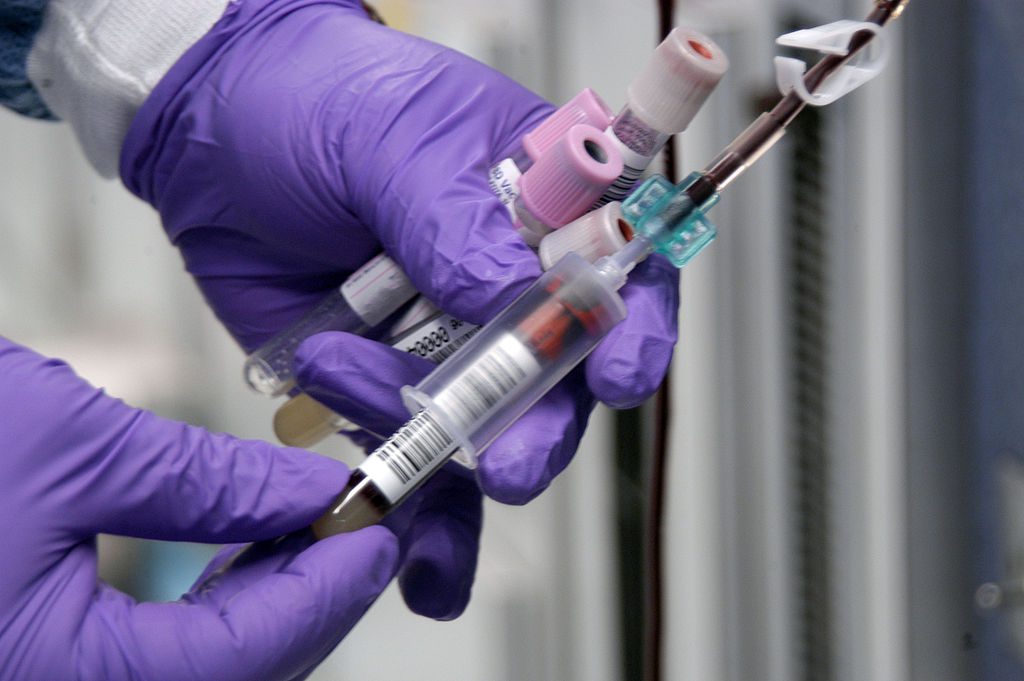Warfarin, a blood thinner commonly-prescribed to patients after joint replacement surgery, is very effective at preventing post-operative blood clots. However, if patients are not given an optimized dose of the drug, they run the risk of experiencing an episode of uncontrolled bleeding which could be life-threatening.
Now, research published in the Journal of the American Medical Association has found that using genetic testing results to guide dosing decisions could help mitigate the risk of warfarin-associated side effects. The findings come at a time when warfarin is the number one cause of medication-related ER visits among older adults.
“Warfarin is very effective in preventing blood clots, but it’s very difficult to regulate,” said study co-author Dr. Anne R. Bass, a rheumatologist at Hospital for Special Surgery (HSS) in New York City. “About half of the population, because of genetic variants, is very sensitive to warfarin or has a very unpredictable or delayed response to the drug. This is the first study to show that adjusting the dose based on these genetic variants makes warfarin safer for patients.”
The Genetic Informatics Trial of Warfarin to Prevent Deep Venous Thrombosis – or GIFT – was conducted at multiple sites, with funding from the National Institutes of Health (NIH). In all, 1,600 patients aged 65 and older were enrolled in the trial after undergoing hip or knee replacement surgery.
Two study groups were established to study whether taking genetic factors into account when dosing warfarin could improve patient outcomes. Patients randomly assigned to the first group were given doses of the blood thinner based on known clinical factors that affect a patient’s response to the drug, including age, weight, gender and concomitant medications. The second group of patients also received genetic testing, the results of which helped physicians determine their optimal dose of warfarin.
Three genetic variants were analyzed for their potential affect on patient response to warfarin. In their first 11 days of treatment with the blood thinner drug, patients in the study were monitored for adverse events, including bleeding and blood clots, as well as warfarin overdose.
Eleven percent of patients whose dosing decisions were informed by the results of genetic testing were found to experience at least one adverse event in the follow up period. This is compared to 15 percent of patients who were prescribed warfarin based on the traditional clinical factors alone.
“This study is a poster child for personalized or precision medicine; that is, using genetics to target treatment to an individual,” said Bass. “The study shows that using genetic information increases the safety of this medication.”
The cost of the genetic testing wasn’t negligible, suggesting that while this method of prescribing could improve patient safety, it would also be more expensive. But at $200 per person, the researchers say that the cost of genetic testing is becoming more affordable.
Warfarin is not just a drug prescribed to patients undergoing joint replacement surgery; the drug is also given to patients with certain heart conditions, including atrial fibrillation, that make them more susceptible to dangerous blood clots. Because of this, Bass notes that the study’s findings could help guide dosing decisions for other patient groups.
“This was really a study addressing warfarin management and warfarin safety, so I think you can extrapolate the results to other patients taking this blood thinner, such as those with atrial fibrillation,” said Bass. “A patient’s genetic information is most valuable when you’re initiating warfarin treatment.”












Join or login to leave a comment
JOIN LOGIN